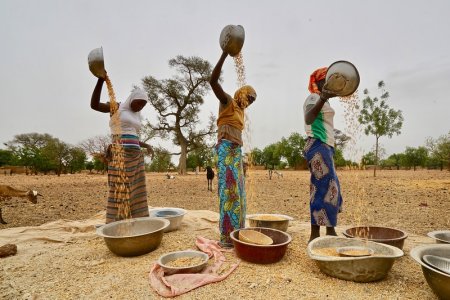
The semi-arid region of West Africa that borders the Sahara Desert in the north and tropical savannas in the south – the number of people at risk of food insecurity has tripled in just two years, bringing the figure to more than 29 million. Families are bracing themselves as they enter what’s known as the lean season, or the period after stored food has run out and before the next harvest begins. An estimated 811,000 people face emergency levels of hunger and require urgent assistance, a nearly eightfold increase since 2019.
Action Against Hunger urges the global community to rapidly deploy the necessary resources for an urgent and effective response to save lives and protect the livelihoods of the most vulnerable people.
“Compared to previous food shortages, this year is different and much more serious,” warns Mamadou Diop, Action Against Hunger’s regional representative in West Africa. “Today, the people who have reached this lean season are already very weakened physically and mentally, because they did not get necessary [routine healthcare services] due to the pandemic.”
Indeed, restrictions related to the pandemic, as well as the fear and stigma around the spread of COVID-19 and the COVID-19 vaccine, have limited people’s access to health centers. These issues have impacted nutrition programs in a variety of ways, including by interrupting supply chains for nutrition treatment and supplemental products and limiting nutrition education sessions, screenings, and support groups.
“At times, the response to COVID-19 has come at the expense of other necessary health coverage campaigns to prevent illnesses such as malaria and measles. In addition, people’s fears and beliefs have impacted traditional vaccination campaigns like polio,” explains Diop.
The impact of the COVID-19 pandemic is compounded by increased violence and insecurity, which has brought the current number of internally displaced persons and refugees in the region to 5.3 million.
Violence is causing immense challenges of access. Communities cannot safely access basic services including healthcare, education, water, food, and sanitation infrastructure while, at the same time, humanitarian actors cannot always safely reach vulnerable communities to provide emergency assistance.
Source: Action Against Hunger







